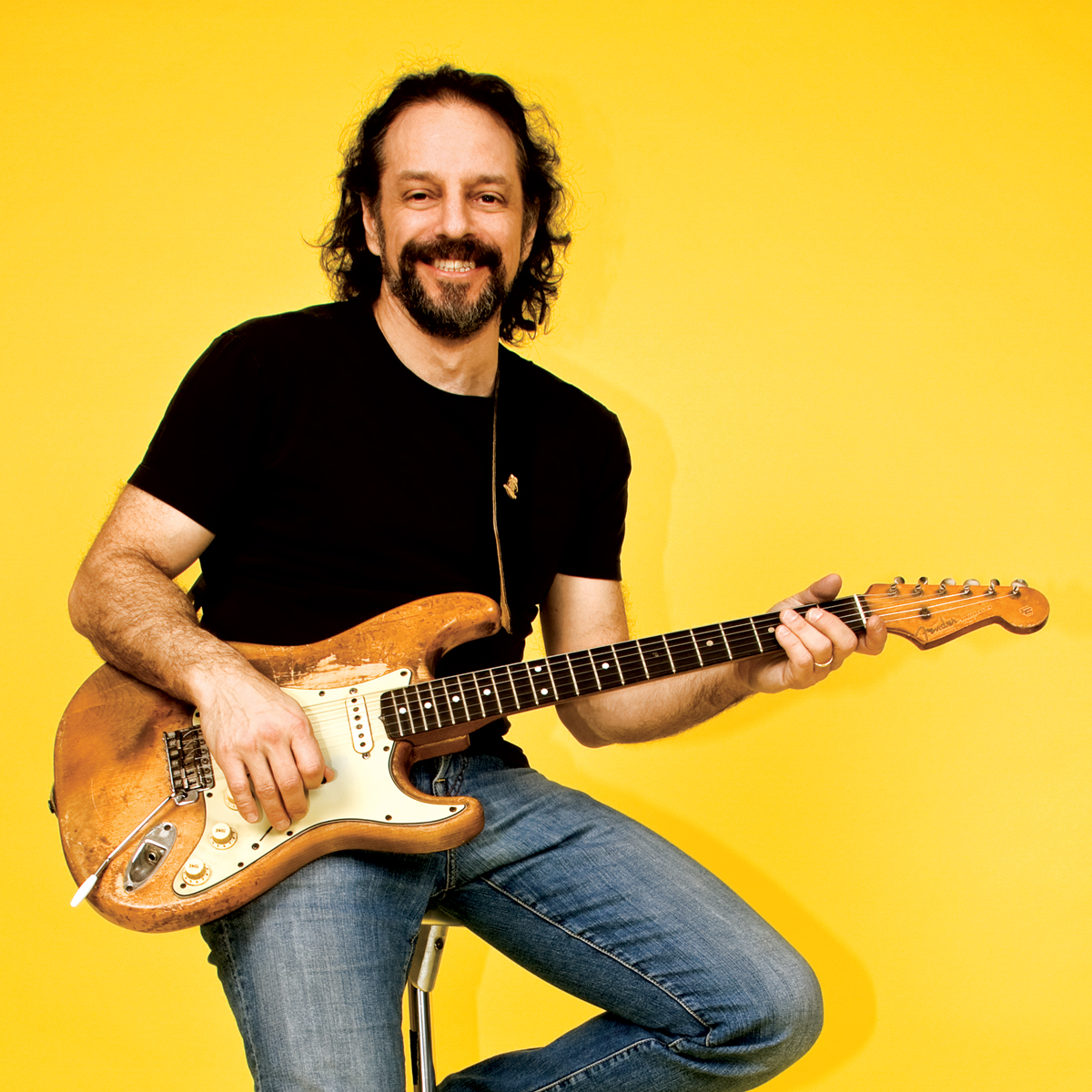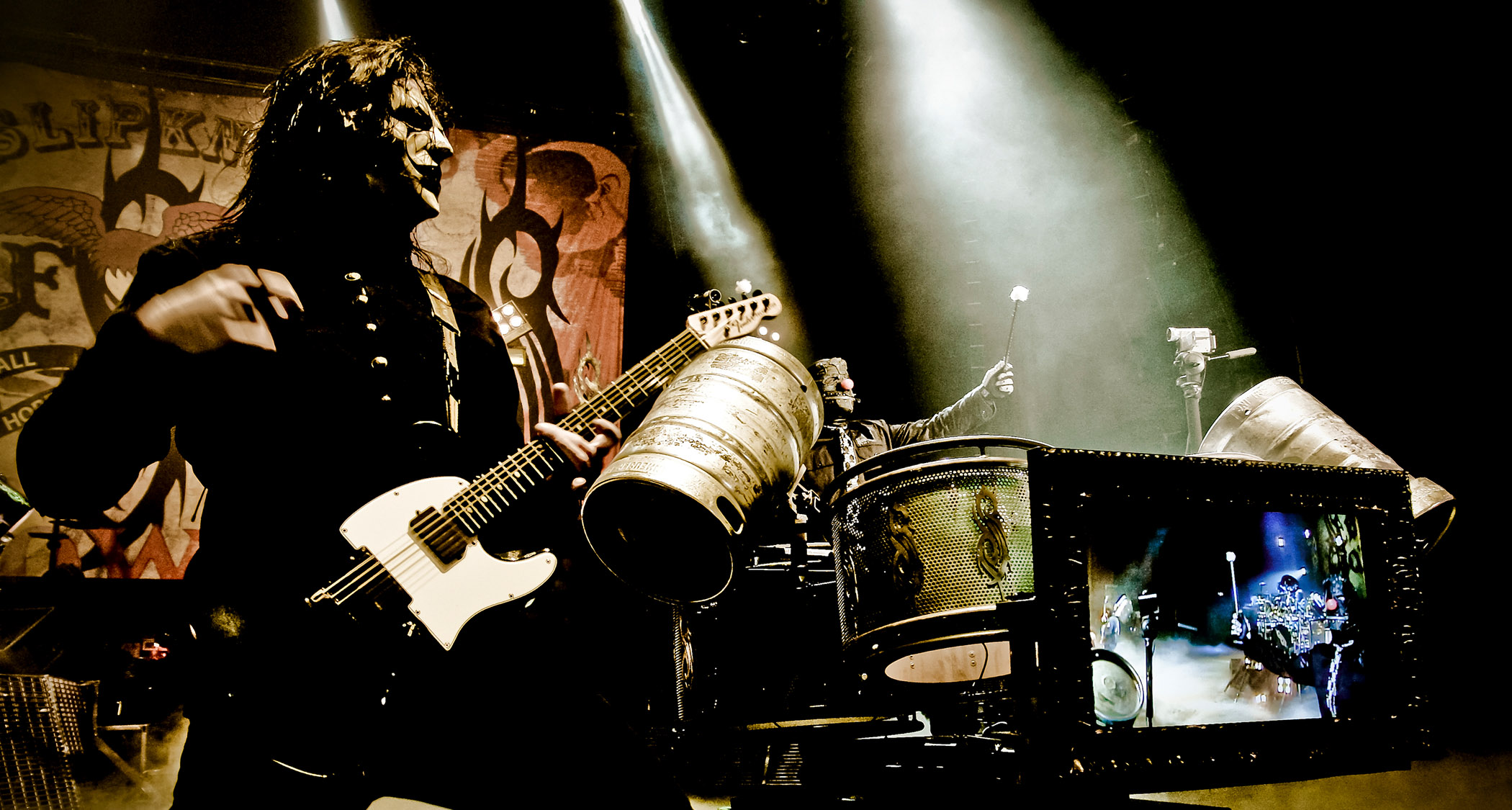Eric Gales: “I could just look at a guitar and almost start crying! I have never been more in touch with myself than I am now”
The undisputed champ of electric blues guitar unpacks the styles and inspirations behind his latest album, the Joe Bonamassa-produced tour-de-force aptly titled Crown
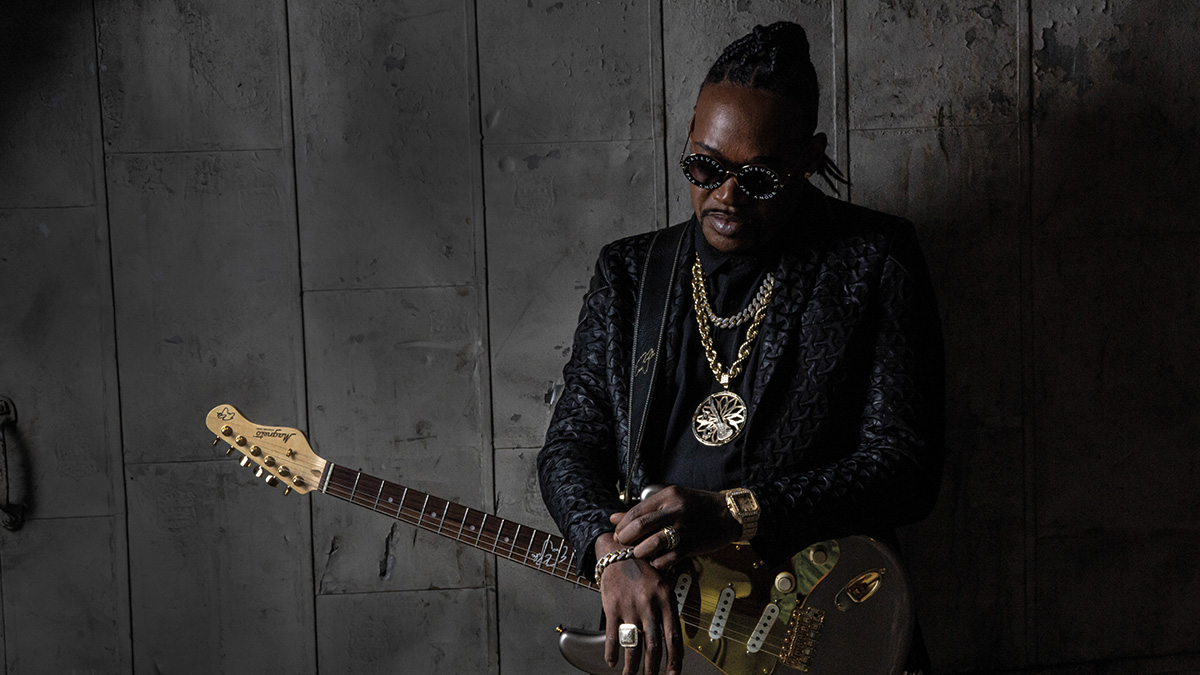
Eric Gales, heralded as one of the greatest blues and rock guitarists of his generation, has lived a life of soaring heights alongside deep, dark lows.
His brilliant, spectacular playing has garnered the respect of generations of guitar fans as well as peers like Eric Johnson, Joe Bonamassa, Dave Navarro, Gary Clark Jr. and Zakk Wylde, as well as his own heroes, such as Carlos Santana who says, “Eric is absolutely incredible.”
Since 1991, the Memphis-born Gales has redefined the language of blues guitar with stunning virtuosity and on-the-edge musical daring, combining the influences of Albert King and Jimi Hendrix with an infusion of the harmonically complex sounds of jazz and classical music, all delivered with a combination of emotional intensity and masterful precision.
When he was just 16, Gales released his Elektra Records debut, The Eric Gales Band [1991], instantly earning high praise as a guitarists’ guitarist. Over the course of 30 years and 18 albums, his passion for the guitar and his boundless desire to keep his music vital has never waned.
But like so many before him, the track of his career was derailed numerous times due to substance abuse. “I put myself in the backseat through my drug addiction,” Gales says candidly. In 2009, he hit bottom and served jail time at Shelby County Correctional Center outside of Memphis for possession of drugs and a weapon.
Now five years sober, a rejuvenated Gales has released Crown [via Provogue/Mascot Label Group], the strongest album of his career in terms of songwriting, singing and his signature explosive guitar playing.
Produced by Joe Bonamassa and Josh Smith, Crown showcases Gales sharing his feelings of positivity and dedication as well as his reflections on the fraught state of the world today. The album was recorded in Nashville at Ocean Way and Sound Emporium studios.
What led up to making this new record with Joe Bonamassa as producer?
All the latest guitar news, interviews, lessons, reviews, deals and more, direct to your inbox!
“Back in 2019, Joe had invited me to join him on a blues cruise, where we did an impromptu jam during his song The Battle of John Henry. A video of the performance hit social media and within 10 days, it was up to 3 million views! The world took to that very, very well.”
You and Joe became friends way back at the start of your careers, yes?
“Yes. Our history as friends and musical compatriots goes back over 27 years. At that time, he was playing in a group called Bloodline, with the sons of Robbie Krieger, Miles Davis and Berry Oakley [Waylon, Berry Jr. and Erin, respectively], and I met Joe when they opened up for me.
“On the blues cruise, Joe and I did an interview together. Beforehand, I had said to my wife, ‘Babe, I’m just going to throw this at Joe: Will you produce my next record?’ The worst thing that could happen is that he’s going to tell me ‘no’ – but he’s going to have to say ‘no’ in front of a thousand people! I sort of backed him into a corner, but the truth is I couldn’t have gotten him to do something he didn’t already want to do.”
“He said to me, ‘You have no idea how long I’ve been waiting and watching. You are a badass guitarist; it would be more than an honor for me to help you get your rightfully deserved seat at the table.’ And we cried when we talked about it. He said, ‘I am going to do my part to lift you up where you’re supposed to be. I think your head is in the right position for the crown to properly fit.’
“It was a great day. I asked, ‘What would it cost me to get you to produce my record?’ he said, ‘First of all, I’m not cheap.’ I said, ‘OK, name the price.’ He said, ‘All I require is two Diet Cokes.’ I went back to my suite and said, ‘Babe, let’s get two Diet Cokes right fast!’ I took them back to him and said, ‘Deal!’ We shook hands and that was it.”
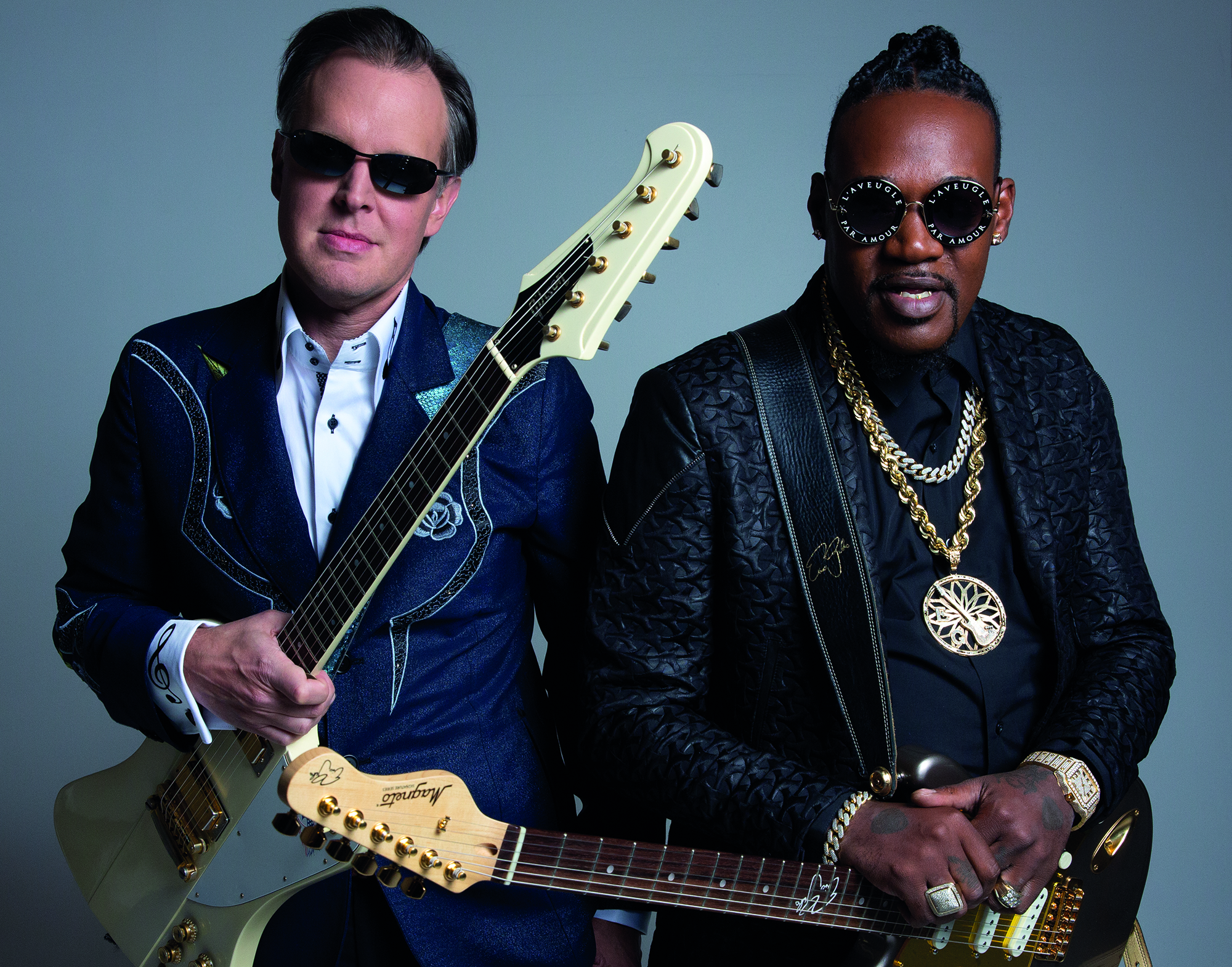
Something that comes through on many of the tracks on the new album is autobiographical material about your personal struggles as well as the nature of the world today. Songs like The Storm, Stand Up, Survivor, My Own Best Friend and You Don’t Know the Blues represent you revealing different aspects of your life, along with your feelings about the world.
“My brother Eugene, who was with me in the original Eric Gales Band, was my mentor. He taught me that the best thing I can do is to write about what I know about. I could make up something, but there’s no better material than personal experience.
“There’s a world out there that’s being heavily consumed by addiction, of many types and many forms. I think it is a large enough subject for the world to relate to – if not directly through one’s own struggles, then indirectly through the struggles of those around us. Many of us have close family members or best friends that are going through the stuff I am talking about.
“Now, there’s that stuff. But there is also a heavy cloud that’s been hanging over the United States for quite some time in regards to race relations and the politics of race relations. I was overly compelled to touch on things of that nature because the day before we started writing for this record was the day George Floyd died.
I think George Floyd’s death brought attention to other countries that have been dealing with the same issues forever
“That event, as we all know, caused a cataclysmic, epic circumstance of events that not only affected Minnesota, it affected the USA. And let’s go bigger than that: it affected the entire world. To look on CNN and see people across the globe saying, ‘I’ve had enough of this,’ I think George Floyd’s death brought attention to other countries that have been dealing with the same issues forever.
“To see Canada, France, England, Germany – everywhere – I have never in my life known of something to affect the entire world in this way. This was an event that unified the world in saying, ‘I’m tired of this, and something has got to be done about it.’
“I would say that 40 to 50 percent of the material on this record came from things that have happened to me, but I was too high in my own mind to even realize that I had been confronted with things of that nature. Now is the time to talk about it. These things need to be addressed, and I need to let people know that I have a platform to get a message to people that I think they should hear.”
The opening lyrics to the song The Storm are, “How can you love what I do but hate who I am?”
“There are people watching and listening to my music and my social media posts that may sincerely not be aware of what the current state is in this world because of their skin color. They don’t know what it is to wake up in black skin. Take the guitar away from me, take away that people know what it is that I do… take me as a regular human being, as a black person living in America.
“If I can’t stand there on the merit of how I present myself in front of you, then I don’t want to get to know you. It’s not cool if you need to like me for what it is that I do, but not for who I am.
“I will say to my audience, “I want you to understand something: this road goes both ways.” And what I mean is, give me the opportunity to make you hate me, instead of you deciding to hate me to begin with. Does that make sense? Don’t dislike me because of my skin color or what I look like; give me a reason for you to not like me.”
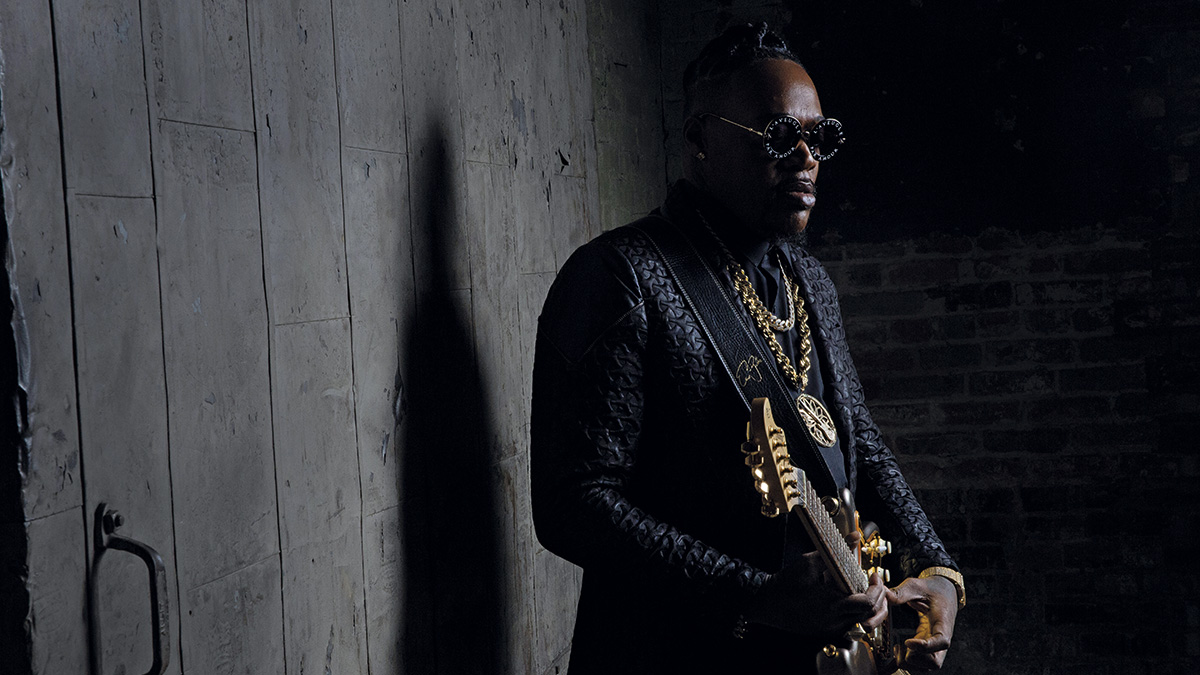
This is a message that many artists choose not to address because subjects like racism are so incendiary, especially right now. There are artists who avoid politics because they don’t want to lose fans.
“I think this is something that needs to be put out there, and I am someone that doesn’t choose to be passive about this aspect of our lives.”
Have you found that sobriety has helped you to focus and be aware of your feelings more clearly?
“Absolutely. Before, as long as I got some dope, you could call me the N-word, and I might get furious about it, but at different points in time, I allowed myself to get engulfed in things that demeaned me. But, truthfully, I was immersed in a place where everything demeaned me, because I was demeaning myself. It’s something I struggled with for almost 30 years. So the racial stuff was just another piece of wood in the fire to burn.
“But now that the heat has cleared, I am much more present about what is and isn’t cool. You have to go knock next door, because right now, I am firmly standing in my sobriety and I am aware of everything that is coming in front of me, so much so that I can see it even before it’s coming.”
“This comes from the evolution of me getting older as well as my sobriety, amongst several other things that have been perks of me getting my shit together, and it’s all part of the gambit that I am stepping into. I am 100 percent prepared and standing firm to go forward with everything that comes my way. You might like me for what I do, but if you don’t like me for who I am, then it means nothing.
“I get riled up about it, but these are things that our forefathers fought dearly for. The musicians in the '40s, the '50s and the '60s went through horrific sacrifices, like not being able to have a meal, or even stay in the same places where they were hired to play. I look at the road that was paved for this black African-American by the black African-Americans that came before me, that went through torture and had to smile in the face of it.
“If I can, I’d like to change that paradigm going forward for the next generation, and hopefully not have these things happen to them. History is supposed to be the best teacher, or else nothing is learned and we will continue to go through the same cycles. I will go to my grave hoping and praying that this cycle does not keep getting repeated.”
One of the greatest blessings of being a musician is that you can use music to communicate with an audience in a language that everyone understands, and you can touch people if they’re open to it. There’s no color, no race, no age. Music has the power to touch everyone if they’re willing to listen. What are you thinking about when you first walk out to play, in the moments before you embark on delivering your musical message to the audience?
“Truth be told, I don’t think about it beforehand at all. It comes to me the moment I step up to the mic. I believe my role is to transmit this energy that’s coming through me from a higher being, and to do my best for it to be accepted the way I am giving it. There’s no preparation for that.
“I have no intention to try to force something down someone’s throat; no matter how much I might take a stand on how I feel things are dissatisfactory for minorities, it doesn’t deserve to be pushed down someone’s throat, and I try to be aware of that. By the time I’m done playing, my only goal is for the audience to understand very well what it is I am saying, who it is meant for, and my reasons for saying it in the first place.”
My addiction almost killed me at least five or six times, and the fact that I am standing here today is a miracle. I take it as a great blessing that I am here today to share my story
“The people that come to my shows, they don’t come to hear me talk about that, and I understand that; they come to hear me play. But I have manifested a way to integrate my conversation about my platform without it turning into something overly political. That is a dog-and-pony show in and of itself. I would rather speak from my own experiences and shed some enlightenment if I can.
“I met someone after a show the other day that said to me, ‘I’m so glad that my friend brought me to this show, because it opened my eyes to a whole style of music that I had no idea about.’
“As great as it is to touch the people who may have never heard me but come with an open mind, I honestly want the people who come with a closed mind. If the energy that drives me connects with that person with the closed mind, then their mind will really be blown, because they showed up with their arms crossed in front of them but left with their arms wide open.”
You are saying that music has the power to change the way people understand and feel about life and about society overall.
“Yes, absolutely. I believe there is a synergy that provides me with the gift that I have been blessed with, and there could be people in my audience that are atheists or agnostic that have never experienced what it feels like to be in a black Baptist church, which is the power that happens from music and the emotions it taps into. That is the kind of spiritual power I want to communicate in my show.
“I was raised in the church, and while there are people in my audience that are feeling the same feeling that I got in church, so am I! I am playing two roles: I am not only playing this show for them, I am also playing this show for me, for my own enlightenment and connection to a spiritual feeling. I am feeling the same thing that I am sending out to the audience, just as if I am out there with them. The power is coming through me and I can feel it, too.”
The connection I feel now is as raw and authentic as it could ever be and supersedes by a million miles anything I could do while I was high
“When people see me yelling while I’m playing, I’m having a conversation with somebody, and it’s not myself – I’m getting hit with it just like everyone else. And I don’t mean that in any kind of braggadocio way; the feeling overwhelms me. I’m just a vessel, and when the feeling comes through, I just get out of the way and let what happens happen. I feel very blessed that I have the opportunity to communicate these feelings, especially to those in the audience that may have never felt these things before.
“The truth is, my addiction almost killed me at least five or six times, and the fact that I am standing here today is a miracle. I take it as a great blessing that I am here today to share my story and strive to pass along a positive message to anyone that will listen.
“All of the people I have known through my life that died from drug addiction are standing on my shoulders today, helping me try to get through to the one person that may be going through what I went through, or they know someone that is going through it, and I want to show them that there is hope. That’s what my whole mission is.”
Playing blues is all about expressing your emotions. Has becoming sober changed the way you play and the way you feel about blues?
“I thought in my high-getting days that I was playing some of the most dopest shit ever. But when I decided to put everything I could into sobriety, I was very afraid as to whether I’d still be able to tap into what I thought was ‘it,’ only to find out that I’ve been shutting myself off for 30-something years! The connection I feel now is as raw and authentic as it could ever be and supersedes by a million miles anything I could do while I was high.
“It’s incredible the barometer for emotional intertwinement that I feel now, and that’s true whether I’m in front of a crowd or just sitting at home playing acoustic guitar. I can go to crying, and I live for that now. I could just look at a guitar and almost start crying! [Laughs] I have never been more in touch with myself than I am now. The 5 percent that I used to tap into is nothing compared to the 10,000 percent that I can tap into now that the fog has lifted.
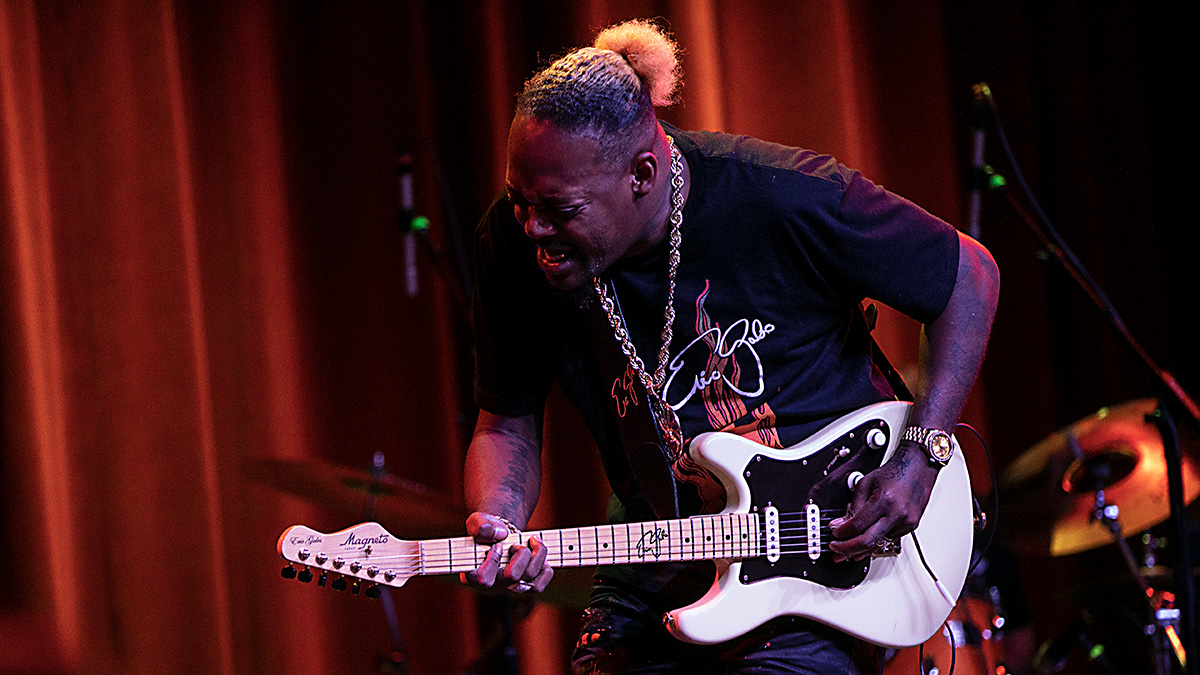
One of the most powerful tracks on the record is Too Close to the Fire.
“Joe and I had spoken a lot about the things I wanted to address in the songs, and that song is all about letting yourself get burned, or allowing yourself to be in a dangerous place for yourself. Joe had a riff and I had the privilege of having Keb Mo’, Tom Hambridge and James House as co-writers, and the majority of the songs on the record came together with everyone’s input.
Songs like Stand Up, My Own Best Friend and Survivor have a gospel vibe to them, and that uplifting spiritual feeling is so strong that most listeners cannot help but to be touched by it.
“Growing up in the Baptist Church and being immersed in gospel music has made it a heavy part of my genetic makeup. I’m so glad we were able to present that style of music, along with all of the other ‘roads’ we traveled through the entire record.”
This is what gratifies me the most about the record: it’s not just blues, or just gospel, or just funk; we got everything
You’ve also got heavy in-the-pocket funk tunes, like Put That Back and Let Me Start with This, combined with a Jimi Hendrix/Stevie Ray Vaughan feeling.
“On Let Me Start with This, I was playing through a Leslie, which really gives it that ‘Jimi’ vibe. Joe and I were putting the song together and I said, ‘Let me start with this,’ and I started playing, and it was the perfect title.
“Those are both heavy pocket tunes, and when you combine these with the blues songs and the R&B/soul ballad-type tunes, we tried to cover the whole pie. This is what gratifies me the most about the record: it’s not just blues, or just gospel, or just funk; we got everything on there that I love the most.”
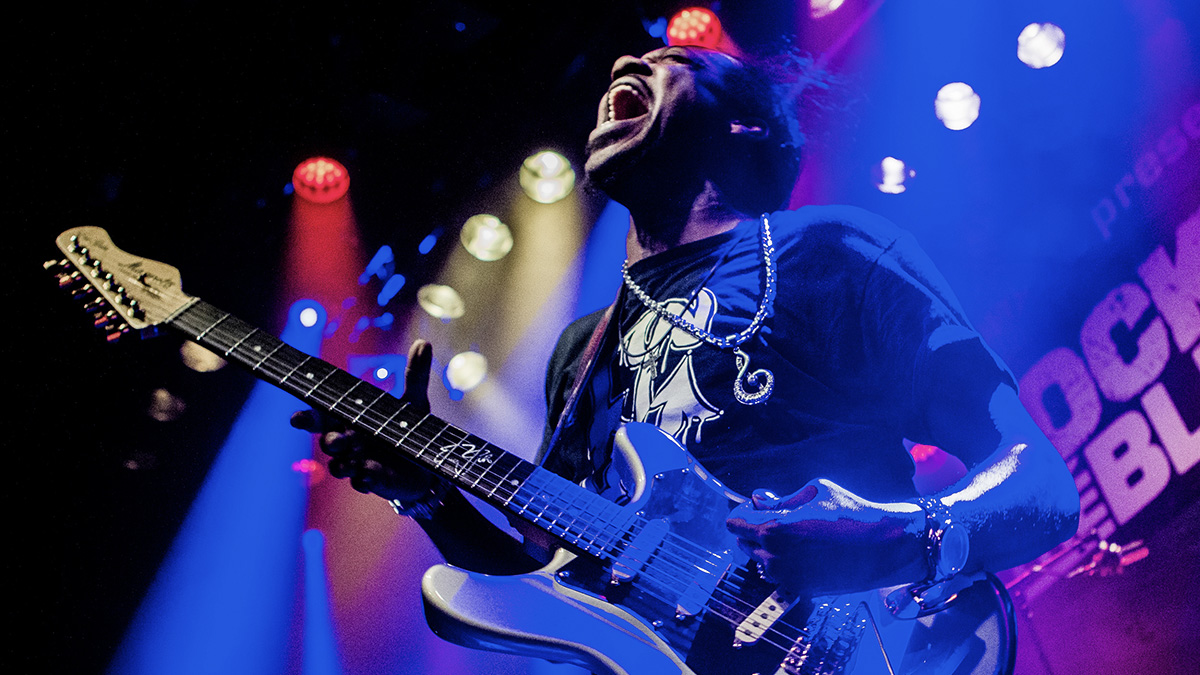
Tell me about the acoustic track, I Found Her.
“My intention is for 70- and 80-year-old couples to play that song on their anniversary day. Joe said, ‘Let’s put an accordion on it,’ and it gives it that Italian, romantic vibe. The song is about how I feel about my wife, LaDonna.”
Of course, there’s the title track, I Want My Crown, for which you and Joe made a great video of going at each other in a boxing ring.
“We’ve been playing that song live and it is smashing the audience. The video concept came out of a dream I had, which originally stems from that video of Joe and me on the ship playing The Ballad of John Henry. So we just made it a real ‘battle,’ in the ring. And even though we present it as a guitar duel, in our eyes it’s a conversation.”
LaDonna is singing on Take Me Just As I Am, yes?
“Yes she is. It was a flip-around in that the whole idea was for me to back her up, after all of these years of her backing me up. She killed it.”
You also have a new Eric Gales signature guitar from Magneto Guitars, the RD3.
“A few years ago, Magneto came out with the RawDawg guitar, but it was in the range of $4,500. This time, we decided to make it more consumer-friendly without sacrificing any of the quality or the materials, and it’ll be around $1,250. The new one feels exactly the same as the one I’ve been playing.
“It’s an incredible guitar. The first 20 will be sold exclusively through ericgales.com. I plan to do a bundle package with the album, the guitar, my MXR Raw Dawg pedal and my DV Mark signature amplifier, which is a hybrid tube/transistor and runs at 250 watts. I run two or four at a time and it sounds incredible!”
- Crown is out now via Provogue.
Guitar World Associate Editor Andy Aledort is recognized worldwide for his vast contributions to guitar instruction, via his many best-selling instructional DVDs, transcription books and online lessons. Andy is a regular contributor to Guitar World and Truefire, and has toured with Dickey Betts of the Allman Brothers, as well as participating in several Jimi Hendrix Tribute Tours.







